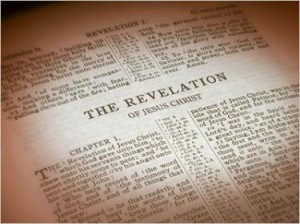
When Reason Becomes Haughty
February 4, 2015The Earth is 4.54 (+ or – 0.05) billion years old. Even more shocking to me than the astronomical statistic in this sentence is that it’s noted as a fact, not a theory. This is a paraphrased statement from Wikipedia’s “Age of the Earth” category, which is derived from three sources: The U.S Geological Survey, a publication from the Geological Society of London, and a work called Earth and Planetary Science Letters. Among the evidence for this figure is the radiometric dating of meteorite material, which has concluded that some measurements of lead in uranium-rich materials afforded proof that this material (as a part of the Earth) exceeded 4 billion years of age.

So we can be sure that our earth is 4 ½ billion years old, give or take a few million years? Really? I feel compelled to offer a shadow of doubt to this school of thought mindful that some may be inclined to sneer at my skepticism. Let me be clear, I’m not trying to debunk the 4.5 billion year theory, and I really don’t have an answer to the ‘age question,’ but I would like to offer an alternative thought process to this debate as a Christian who does not generally view science as a body of absolutes.
“In the beginning God created the heavens and the earth. 2 Now the earth was formless and empty, darkness was over the surface of the deep, and the Spirit of God was hovering over the waters.
3 And God said, “Let there be light,” and there was light. 4 God saw that the light was good, and he separated the light from the darkness. 5 God called the light “day,” and the darkness he called “night.” And there was evening, and there was morning—the first day.” GENESIS 1: 1-4
God’s Time
To be sure this scripture doesn’t actually discredit the scientific theory about our earth’s age, but it does reveal something remarkable. The author of the tangible things of this earth created everything from nothing. My first point is this: If God can create an elaborate grid of plants, beasts, and humans from a formless void, then He can create rocks with whatever radiometric or carbon integrity He wants. In other words, let’s put to the test the origin or the basis of this claim, the paradigm from which it’s measured. If we weren’t involved in a rock’s origin (which we weren’t), how can we gauge its age accordingly? I think it’s important to not assume a wisdom that is higher than our Maker’s. What if our geological measurements of rocks only employ part of the picture? What if our instruments don’t fully encompass the divine plan that took place in the creation of the universe? What if, and pardon me for this zany hypothesis, the earth isn’t 4.4+ billion years older than Noah? What if God actually created Adam and Eve in the Garden on the 6th day and didn’t covertly tick four billion years off the earth’s clock in the process, and fail to fill in the author of Genesis? (Please excuse the sarcasm)
God’s Light
Another marvelous extraction from this Genesis passage that greater illustrates God’s greatness is that ‘light’ existed simply because God said “Let there be light.” Take note, this light spoken into existence in verse three is NOT the sun; the creation of the sun, chronologically, happens later. In some scientific circles, the sun is often referred to as the center of our portion of the cosmos, and it is the source of physical light on earth, but it’s not the light which appears first in Genesis. This light is the center of what God establishes next. I believe that the light which appeared first was Jesus; all Old Testament signs point to His arrival. In God’s scheme it seems like Jesus is the light at the center of our universe, and not the sun. The son and NOT the sun!
“I urge you, as I did when I was on my way to Macedonia, to remain in Ephesus so that you may instruct certain people not to teach any different doctrine, and not to occupy themselves with myths and endless genealogies that promote speculations rather than divine training (plan) that is known by faith.” (1 Timothy 1:3-4)
Let me again preface my comments from this Timothy scripture as not necessarily pertaining to the theory of the age of the earth or any related scientific idea, but it is of note that Paul is encouraging Timothy in his ministry to teach and train the Church in truth. The over-arching exhortation for Timothy is to guard against false teaching, thus avoiding wasting time entertaining myths and “endless genealogies.” I can only speculate what he means by “endless genealogies,” but Paul could very well mean, within this context, forms of astronomy or cosmology. A rising philosophy in this time was that of the Greek “Aeon,” introduced likely by certain sects of Gnostics. This philosophy, without being sure how it could have applied to Timothy’s ministry and community, honored theories of a vast geologically-based time spectrum in relation to the earth. Whatever these philosophies were, Paul is defining them as false, and thus warning against them.
Is God so abstract, or are we “like” Him?
I believe there is an over-dramatization in the Church concerning the abstractness and mystery of God, which Paul could have been seeing in the Gnostic tributaries of the early Church. I think sometimes we even justify our own unbelief or lack of understanding by just positing: “You can’t put God into a box.” There is truth to this statement, and we, humans can’t begin to understand His expansive authority and ability. But is He so abstract? To create us in His image, to establish a covenant with His people? To have His spirit (the same Spirit which rose Christ from the grave) dwell in those who believe in Him? Ephesians 1:9 says that “…He made known to us the mystery of His will according to His good pleasure, which he purposed in Christ…” No, I don’t think God is abstract at all: He pursues us, loves us, and seeks to ‘relate’ to us, and according to His word, He has revealed His will to us, His son! The relationship which God quests for He and His people is not abstract, because that would make it impersonal!
The Paradox of Science/Prophecy

I’m very convinced of this: That God did not create us with the ability to reason or rationalize ourselves out of relationship with him, so that must be a product of man… I’m also quite convinced that Science and its precepts exist and are useful only within the confines of God’s ways.
The unfortunate paradox that I’ve seen firsthand in my journey with Jesus is the intolerance of present-day prophecy in the Church, despite the overwhelming scriptural evidence that it’s still a part of the average Christian life. This isn’t even a matter of splitting “theological” hairs, this is a foundational truth about you and I that we don’t have time to argue about! Jesus even declares that the Holy Spirit will lead us into ALL truth!!! Amos 3:7 states that God does nothing without first revealing that knowledge to His prophets. Paul expressly states that prophecy and words of knowledge are spiritual gifts for the Church. In John’s Revelation to the Asian (or end time) Churches, he proclaims that “…it’s the Spirit of Prophecy who bears testimony to Jesus!” (Revelation 19:10) Heck, John’s Revelation was a prophecy!
So how is it that ideas about our past (origin of the universe) are certain and solid, but glimpses of the future from God’s prophets are shunned and misunderstood? When a core component of God’s Kingdom like prophecy is being marginalized yet lofty allegiances to science are being praised, we may be dealing with a distortion of truth and a creeping form of deception with the ability to lead His sheep astray!
As a brother or sister in Christ, I ask that you open your hearts to truths that have been made known to you, exercise a spirit of discernment, and see singly through a healthy eye, because when we see singly through the eye of truth our whole bodies are flooded with light! (See Luke 11:34, Matthew 6:22)
 Joe D’Orsie – Communications & Spiritual Life Counsel jdorsie@livewithpurposecoaching.com
Joe D’Orsie – Communications & Spiritual Life Counsel jdorsie@livewithpurposecoaching.com